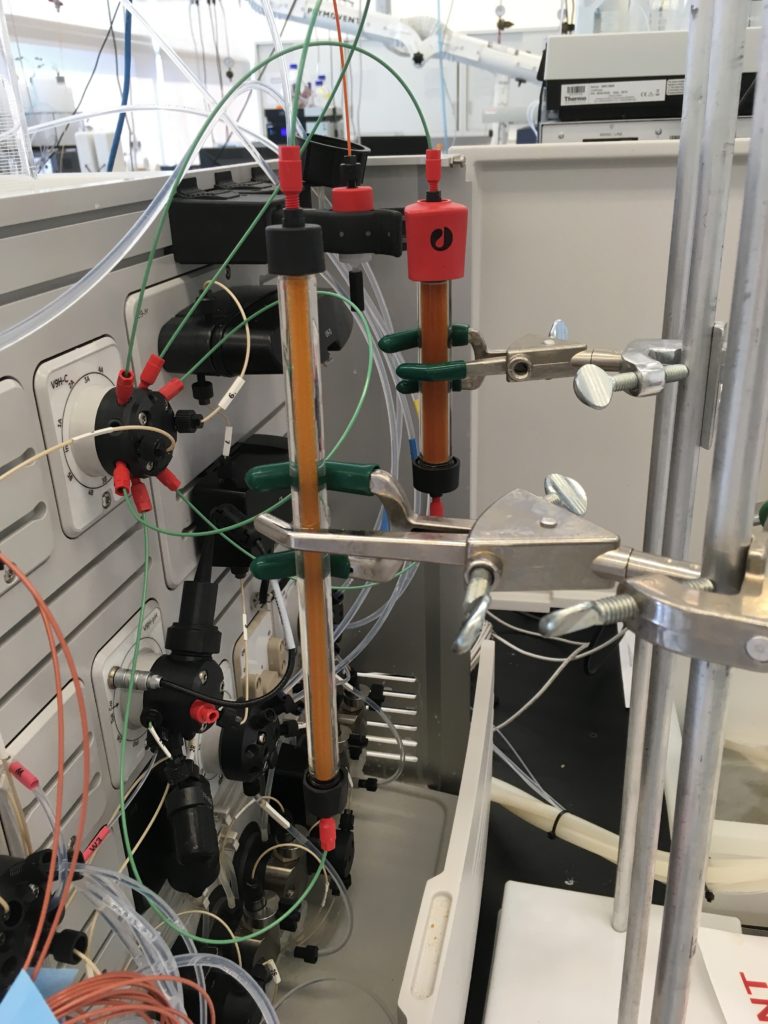
Exploring the feasibility of chromatography in Namuh’s process
Namuh (formerly Sugarlogix) is a biotech startup developing yeast-based technologies to produce a key component in infant formula.
Human milk oligosaccharides, or HMOs, are sugars that are found naturally in human breast milk. These rare sugars promote healthy immune systems and neurological development in infants.
Namuh, based out of Oakland, CA, is working on producing these sugars so they can be used in infant formula.

The Namuh team came to ABPDU in 2018 seeking to test the feasibility of a type of chromatographic separation in one of their downstream processes.
To do this, they sought out ABPDU’s chromatography capabilities, specifically the ÄKTA Avant chromatography system. Chromatography, a separation technique, is typically applied to purify specific proteins by binding them to a resin column and allowing the impurities to pass through. In this case, the ABPDU team worked with Namuh to purify their product from other carbohydrates present in fermentation culture.
“It was quite a challenge from a chromatography standpoint,” said Isaac Wolf, Senior Fermentation/Recovery Process Engineer at ABPDU. “The components were very similar in size and charge, so it created a very unique purification situation.”
The ABPDU team was able to separate one sugar from the desired product, but separating all carbohydrate components became tricky due to the similarity among them. This knowledge helped better define how the rest of the process should be run to minimize downstream processing issues.
“This study with ABPDU helped us define the direction for our project,” said Josh Cohen, Fermentation Scientist at Namuh. “It helped us understand that if we were to pursue this route [to purify our product], there are things we could do to make it work better.”
“This project with Namuh helped broaden ABPDU’s scope regarding downstream purification and development,” Wolf said. “We were able to establish the feasibility and limitations for using this type of resin in Namuh’s process and furthered our capabilities with the ÄKTA Avant: chromatography resin selection, column packing, and product testing are capabilities in the ABPDU’s tool kit and have since been used for multiple other clients.”
Cohen said he enjoyed being able to closely work side-by-side with the ABPDU’s team to better understand this project.
“Having a resource like ABPDU in the Bay Area is extremely useful,” Cohen said. “Ultimately, we were able to have a flexible, collaborative relationship. That part in particular was really helpful for generating important results for our projects.”